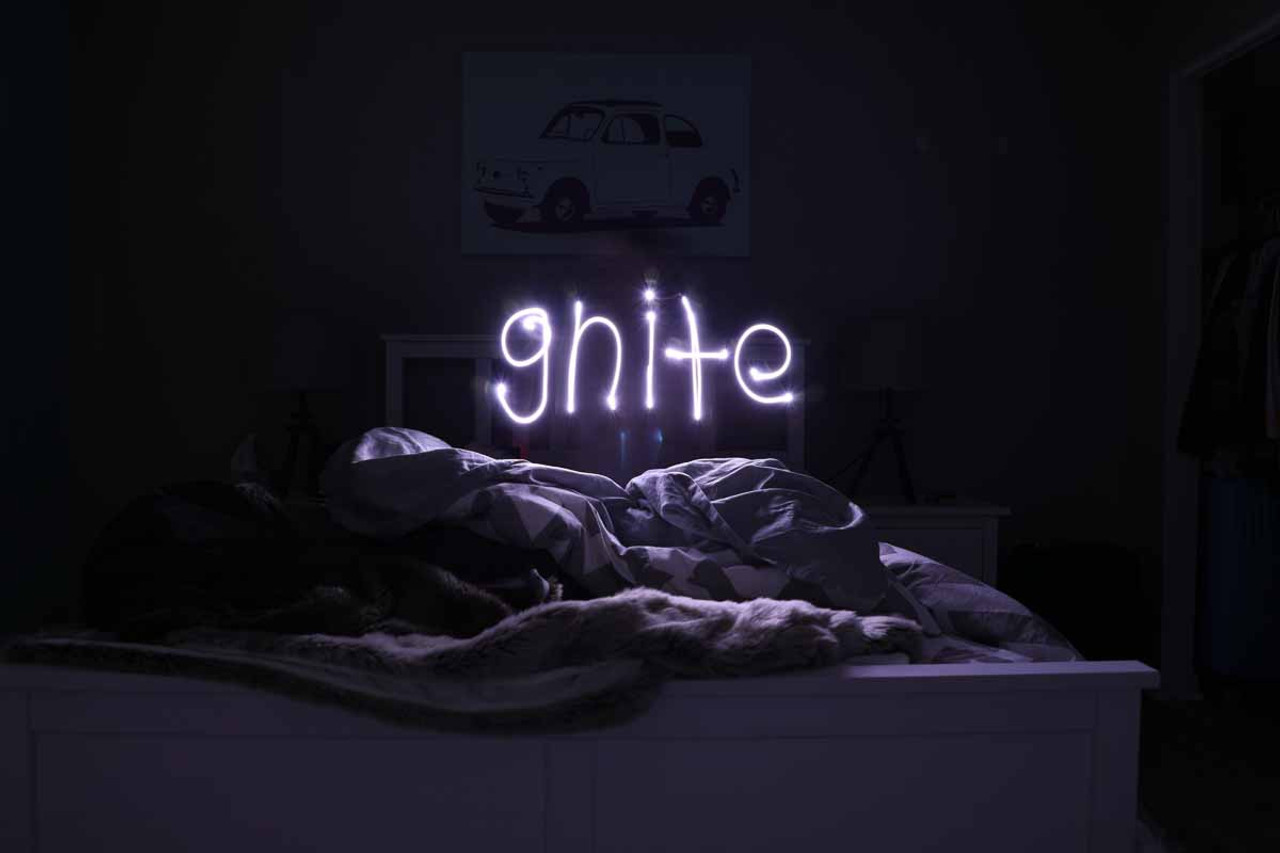Need for Sleep
Sleep Cannot be Substituted
Our collective relationship with sleep is rather amusing. On one hand, we have access to this free, effortless, and abundant resource that has been empirically proven to be incredibly beneficial for our health. Yet, on the other hand, we seem to have an ongoing obsession with trying to minimize or eliminate it.
Sleep Is Imperative
As a society, we maintain a complex and mostly negative relationship with sleep. Products like Five Hour Energy rake in billions of dollars in sales each year, while at the same time, roughly 30 percent of adults complain of suffering from insomnia. The truth is, there's simply no substitute for a good night's sleep; it's irreplaceable. The detrimental effects of insufficient sleep are well-documented, established, and beyond dispute.
Perhaps the greatest irony lies in the fact that, as a society, we are constantly striving to get less and less sleep, despite the undeniable importance of sleep for achieving the very things we value most: intelligence, physical fitness, weight management, and even factors like testosterone levels and reproductive health. With approximately 30% of adults getting fewer than six hours of sleep per night, it is crucial to engage in a serious discussion about how sleep, or the lack thereof, might be at the root of many health issues.
Sleep as a Microcosm of Lifestyle's Impact on Health
My fascination with sleep dates back 17 years when I had a close friend whose father was the director of a sleep clinic at Stanford University. I had the privilege of learning intriguing tidbits about sleep just as my interest in health and wellness was beginning to blossom. One eye-opening revelation came from a study his father conducted, revealing that the majority of college students suffered from sleep deprivation. To identify this, they conducted a simple test: if students fell asleep within minutes in a waiting room, they were considered sleep-deprived. Shockingly, most students fell into this category. However, the study's primary focus wasn't to emphasize the students' need for sleep but to illustrate how lack of sleep detrimentally affected cognitive performance.
This was a revelation for me, as I had never encountered such information before. I also discovered the concept of "microsleeps" – brief moments of sleep that occur when you're utterly fatigued and experience sudden, involuntary lapses in consciousness. I was amazed to learn that the Exxon Valdez oil spill in Alaska in 1989 was attributed to microsleep rather than alcohol consumption. This newfound knowledge had a profound impact on my burgeoning interest in health and the profound influence of our choices on our well-being.
The Night-Sleep Cycle, Yin, and Its Alignment with Nature
Now, reflecting on those times as if from another lifetime, I can see how well sleep aligns with Chinese Five Element theory and the concept of Yin and Yang. Sleep represents a microcosm of our daily cycle of death and rebirth, echoing throughout various phases of our lives, our overall lifespan, the natural world, and even the universe.
Just as the seasons transition, and the bountiful late summer and early fall harvests depend on the entire seasonal cycle preceding them – the restful winter, the revitalizing spring, and the nourishing summer – our daily well-being, vitality, and energy depend on the quality and quantity of rest and sleep we receive the night before. Just like many aspects of life, you cannot have one without the other. Day cannot exist without night, and wakefulness cannot thrive without adequate sleep.
Short-Term Consequences of Sleep Deprivation
Sleep has short and long term effects on health. As little as one night of poor sleep has been shown to have pretty remarkable negative impacts on health and behavior.
With just one night of poor sleep:
- People are more likely to overeat and opt for low-quality foods. Research demonstrates that poor sleep increases hunger, leading to larger portions and a preference for high-calorie and carbohydrate-rich foods. Sleep-deprived individuals also make less healthy food choices while shopping.
- Men experience decreased testosterone levels. In a study involving young male participants, reducing their sleep from an average of eight hours to five hours per night resulted in an almost 11% drop in testosterone levels.
- The likelihood of accidents increases. Those who sleep for just six hours or fewer per night raise their risk of driving-related accidents by a staggering 300 percent.
- Sleep-deprived individuals are perceived as less attractive and sadder. In a peer-reviewed study, individuals with insufficient sleep were rated as looking sadder and less attractive than when they were well-rested. Chronic sleep deprivation has even been linked to premature skin aging.
- Susceptibility to illness rises. Short-term sleep deprivation weakens the immune system, with getting less than seven hours of sleep per night tripling one's chances of catching a cold.
- Brain tissue loss occurs. After a single night of insufficient sleep, blood markers associated with brain damage increase, indicating that poor sleep causes damage to brain tissue.
- Focus and memory decline.
Long-Term Consequences of Sleep Deprivation
The cumulative effects of prolonged sleep insufficiency significantly impact our health. Just one week of inadequate sleep has been shown to negatively affect over 700 different genes. This revelation highlights the paramount importance of sleep and how its absence can have far-reaching consequences on the body.
As previously mentioned, the US Center for Disease Control (CDC) estimates that 30% of Americans get less than six hours of sleep per night on average. It takes only one week of consistently sleeping less than six hours per night to trigger the genetic changes mentioned earlier. Just as stress-induced genetic changes can be passed down through generations, one can assume that insufficient sleep-induced genetic changes may follow a similar pattern. For those interested in epigenetics (how lifestyle influences genes and gene expression), sleep quality provides a compelling demonstration of this concept.
In a recent discussion on the connection between coffee and health, particularly in the context of emphasizing the significance of high-quality sleep and the genetic alterations associated with poor sleep, it's crucial to underscore that, on a chemical level (which may go unnoticed by individuals), that morning cup of coffee can have a detrimental impact on sleep.
Over the long term, sleep insufficiency leads to:
- An increased risk of diabetes and insulin insensitivity. Several nights of insufficient sleep result in levels of insulin insensitivity comparable to those seen in type 2 diabetics.
- Decreased cognitive abilities across the board, including impaired gross and fine motor skills, coordination, and higher-level executive functions.
- Reduced mental well-being and an increase in markers of depression.
- Elevated rates of various types of cancer, including breast and colorectal cancer – two of the most prevalent types of cancer.
- Higher rates of obesity.
- Increased susceptibility to stroke.
- Elevated risk of heart disease.
- Diminished sperm counts in men.
- Reduced fertility in women, along with an increased rate of pregnancy complications and miscarriages.
- An overall heightened risk of premature death.
Two Select Videos on Sleep
In Conclusion: Our Reluctance to the Natural
We all understand the importance of sleep, even if we don't fully comprehend its significance. However, what captivates me most is not just the health and wellness aspect of sleep but how it fits into the broader patterns of our lives – what we prioritize and what we dismiss. By examining how different systems of medicine develop within the societies and cultures they serve, we gain insight into the values, strengths, and weaknesses of those societies.
Allopathic medicine (commonly known as Western medicine) is rooted in an industrial to post-industrial society, one that has become increasingly disconnected from the natural world and our place as human beings living within it. This disconnection persists even when our surroundings may seem far removed from traditional notions of nature, such as in bustling cities like New York City, Mexico City, or even the industrialized, dark streets of Dickensian London. In contrast, the classical system of Chinese medicine emerged from societies deeply intertwined with nature and attuned to its natural cycles. Chinese medicine and the agrarian lifestyles it initially served are inseparable—they exist in symbiosis, one within the other.
Where I currently reside in Vermont, while surrounded by natural beauty, I find myself in a post-industrial society. Often, it seems as if my daily actions are disconnected from the ebb and flow of the natural world, which has existed long before us, coexists with us, and will continue long after we're gone. Chinese medicine offers a framework for reconnection, helping us understand our place within this environment we've co-inhabited all along, even when we were unaware of its influence or chose to deny it.
Sleep epitomizes this phenomenon. The advent of electricity transformed our relationship with night and sleep. With the invention and widespread use of the light bulb, we gained the illusion of control over night and sleep – we could flip a switch and banish darkness. Yet, the forces of nature have always been present, shaping our lives even when we denied their influence. As we've seen, denying their impact for even a single day results in the body's protest – surges in insulin, cortisol, brain tissue damage, and, when prolonged, a dramatically elevated risk of severe illnesses, including cancer, heart disease, stroke, diabetes, and various other ailments. Not to mention, a less attractive appearance to others.
Perhaps there's no return to a life as deeply intertwined with nature as it was 2000 years ago. Romanticizing such a life merely glosses over its hardships. Instead, our goal should be to recognize how our lives remain interconnected with the natural world, albeit in a different guise. While the colors of the world may have changed, the underlying essence remains constant. We still need to rest, both collectively and individually.
Site Disclaimers
General Guidence
The content on this site is provided for educational and informational purposes only and should not be construed as medical advice. Always consult a qualified healthcare provider before making changes to your diet, lifestyle, or health regimen, particularly if you are pregnant or nursing, under the age of 18, managing allergies or known sensitivities, or living with any medical conditions.
At RAW Forest Foods, your safety is our priority. Please note that our products are dietary supplements, not medications. The following disclaimer applies:
* These statements have not been evaluated by the Food and Drug Administration. These products are not intended to diagnose, treat, cure, or prevent any disease.
Ingredient Transparency and Allergen Awareness
We are committed to providing transparent ingredient information to help you make informed decisions. If you have or suspect you have allergies to any of our ingredients, we strongly advise against using our products, as allergic reactions can be severe.
Interaction with Medications
If you are taking any medications, consult with your healthcare provider before using supplements. Certain supplements may interact with medications, potentially altering their effectiveness or causing unwanted effects.
For more details, please review our full Terms and Conditions.






